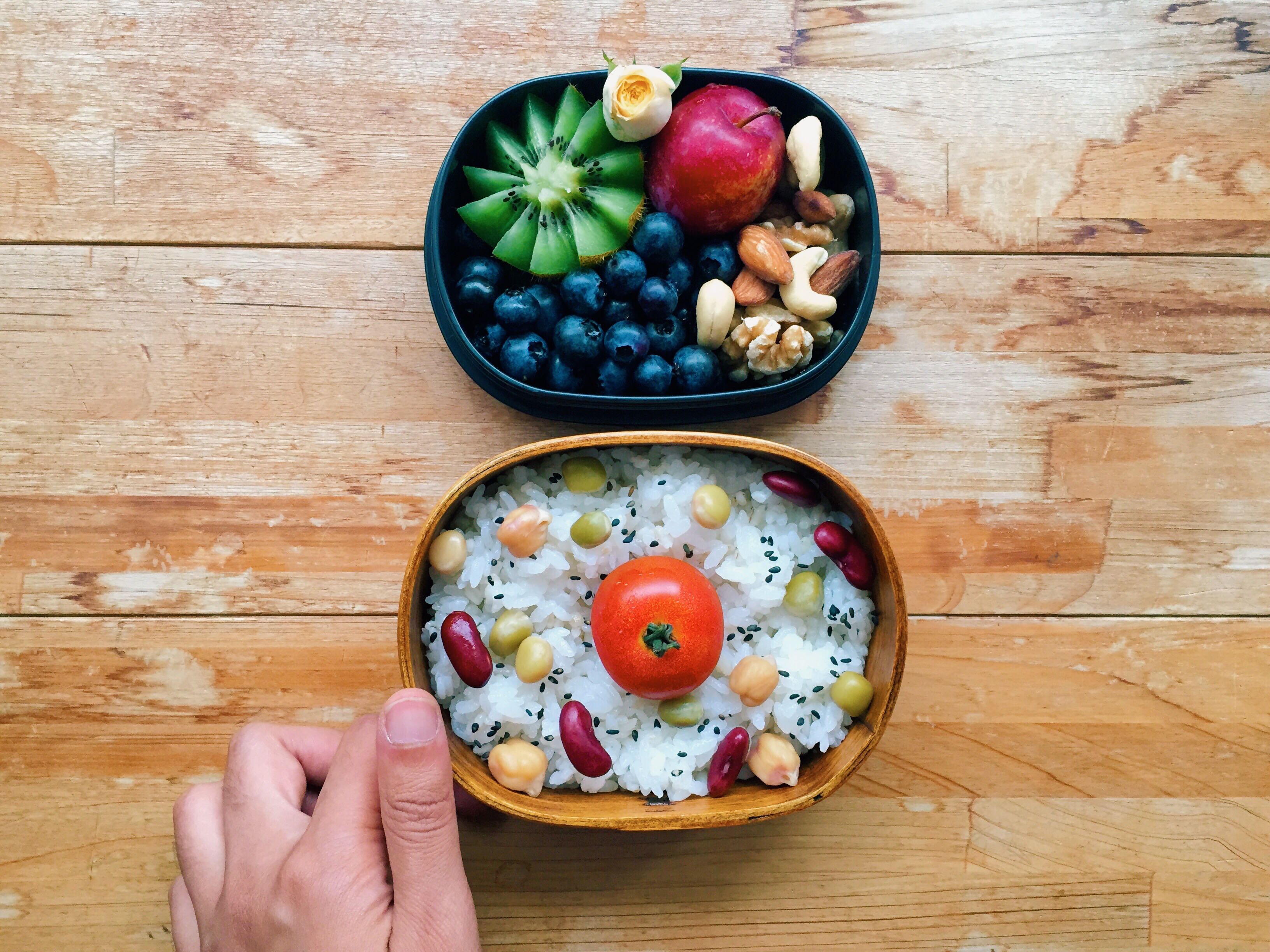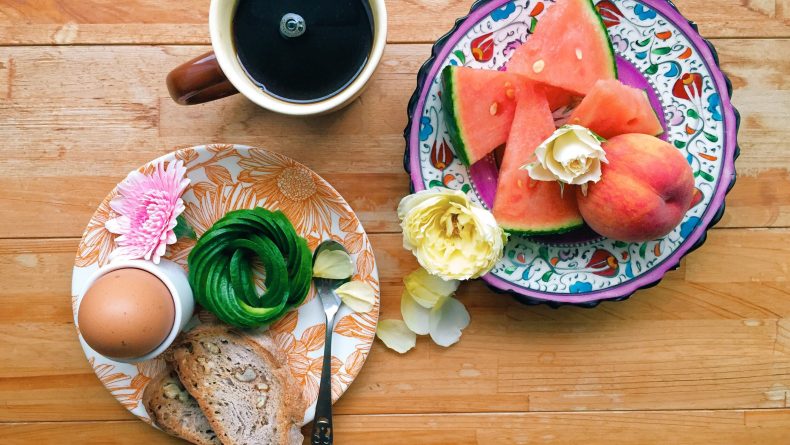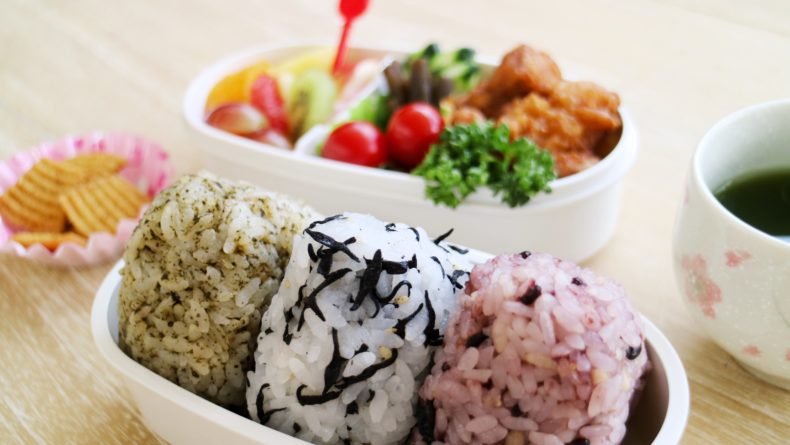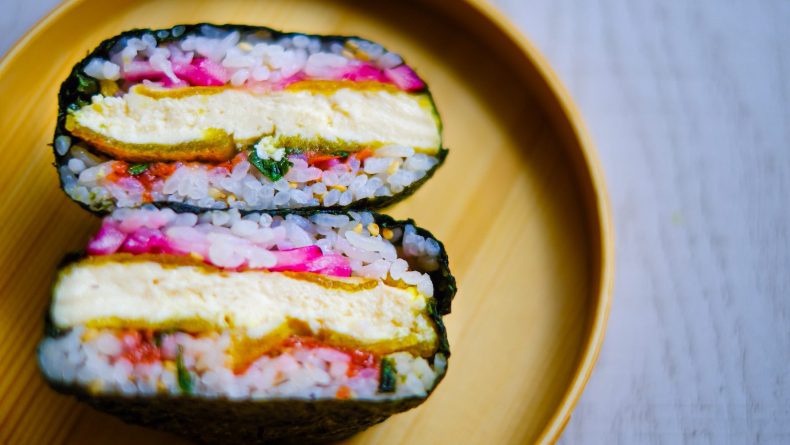Easy Bento Making For Newbies
Japanese Lunch Box Mastery Revisited
Never made a bento before? Afraid you might not cut it in the lunchtime world of avocado flowers and Hello Kitty sushi rolls? Good news. It doesn't have to be as difficult as you think.
Once upon a time in a land far, far away (o.k., New Zealand), I used to be a bento virgin, scrolling through adorable Pinterest bentos and sighing at my inability to recreate one. Flash-forward a couple of years and it’s safe to say, I’m an addict.
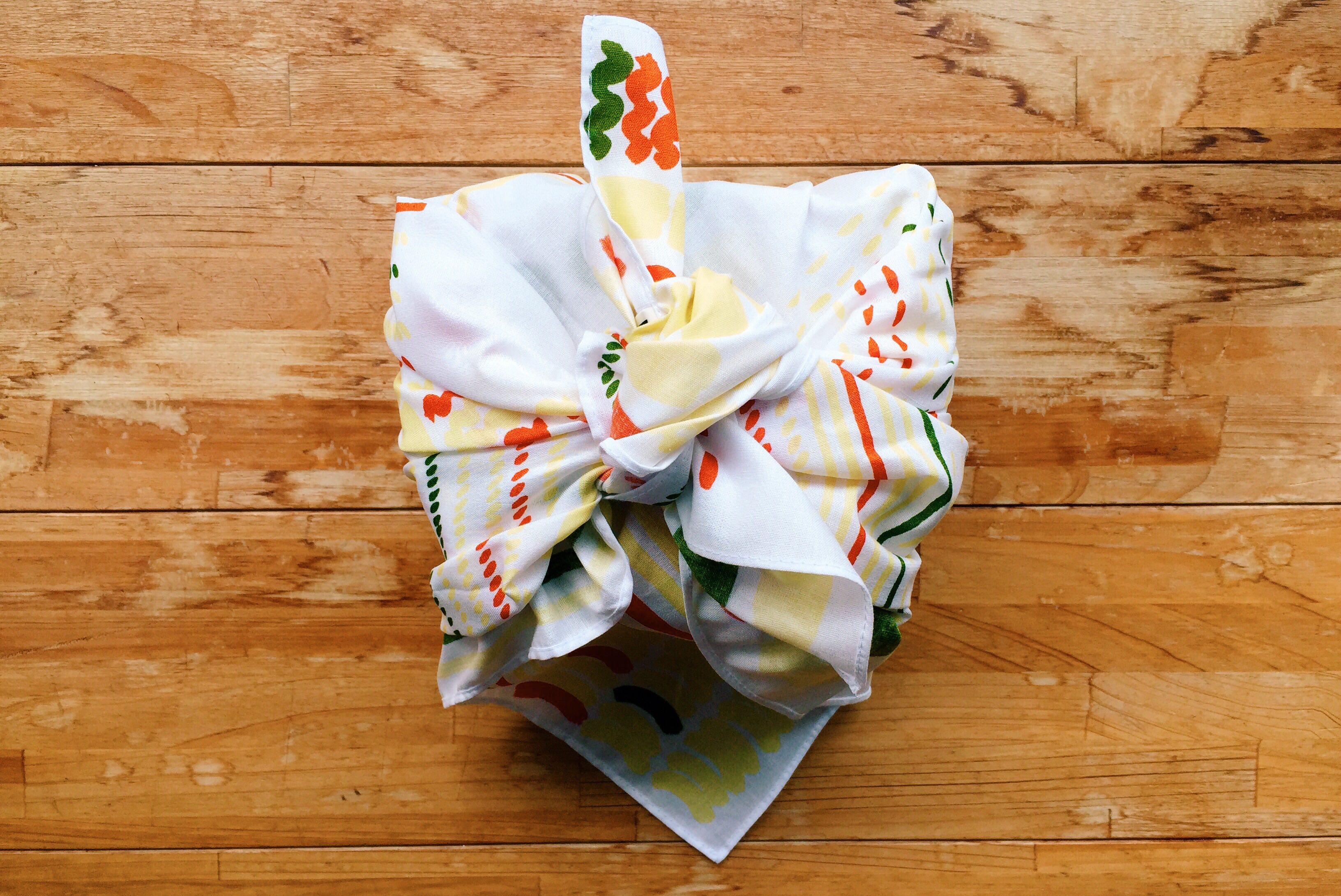
Packing a bento is one of the most rewarding experiences there is. This is because preparing your own lunch in an attractively-presented boxed fashion is not only exciting and enjoyable but also affordable and healthy.
Assuming you too are a bento newbie in need of a convincing nudge to get you “o-bentoing”, allow me to calm your fears by sharing what preparing a bento doesn’t require.
It doesn’t have to be kawaii
Seriously, it doesn’t have to be cute, just neat and appetizing. In Japan, there are various types of bentos but the one thing that they all have in common is that they are meals packed into a container – usually in the shape of a box with one, two or sometimes three levels.
The first step in becoming a bento maker is acquiring one of these boxes.
They can be cheap, standard versions from a ¥100 store or as fancy as 35 times that price (yikes!). For the neat factor, silicon baking cups and dividers can also be bought at the ¥100 store though I personally keep things tidy by just packing everything tight, and then lovingly carrying my bento upright.
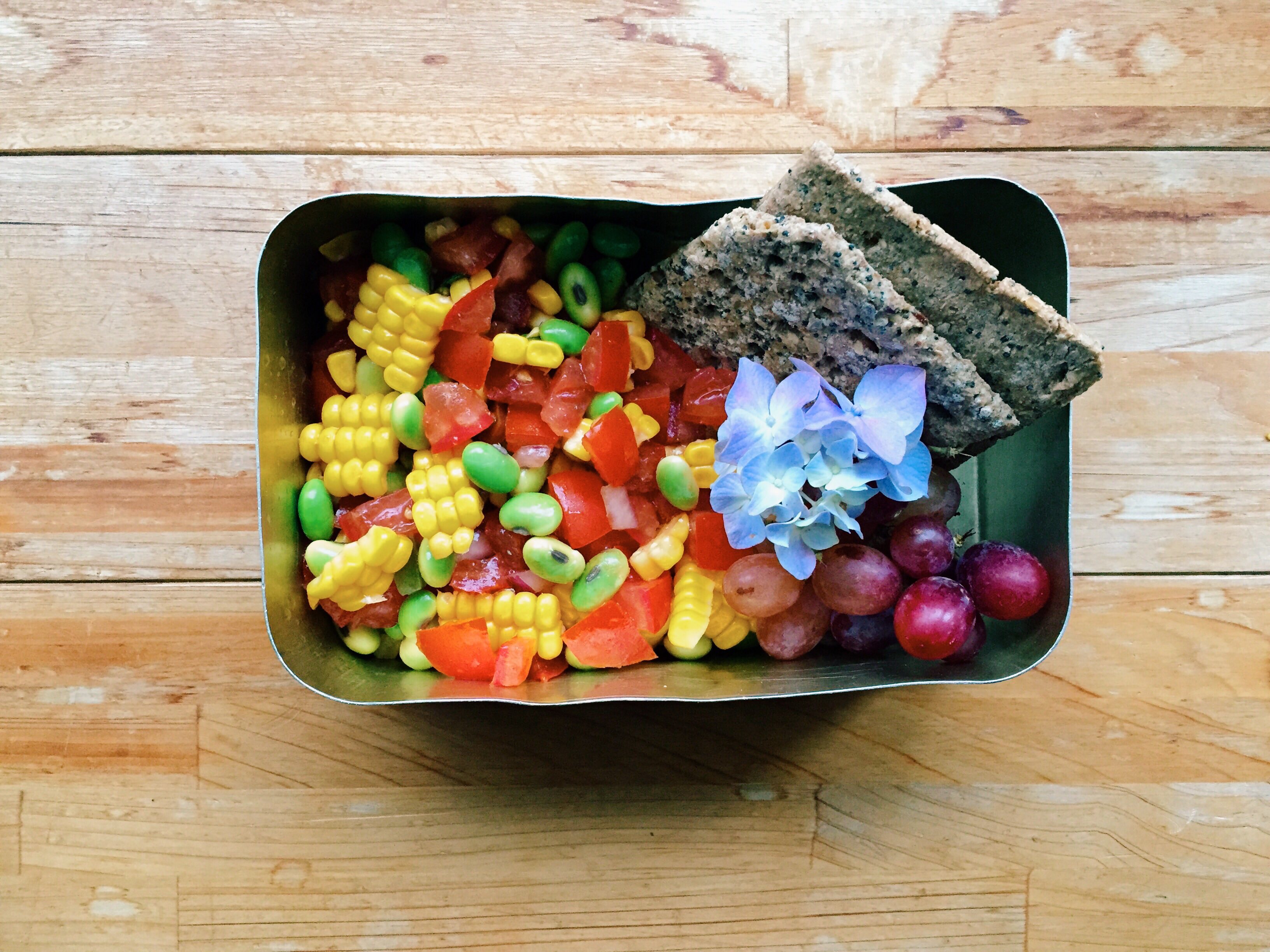
It doesn’t have to include Japanese food
For now, practicing how to bento is enough. You can learn to master the art of Japanese gastronomy another time. Your bento is yours alone.
So fill it with whatever you like.
The same goes for preparing bentos for your children or loved ones. You can use the different levels (if your bento container has them) to separate foods like grain or fruit.
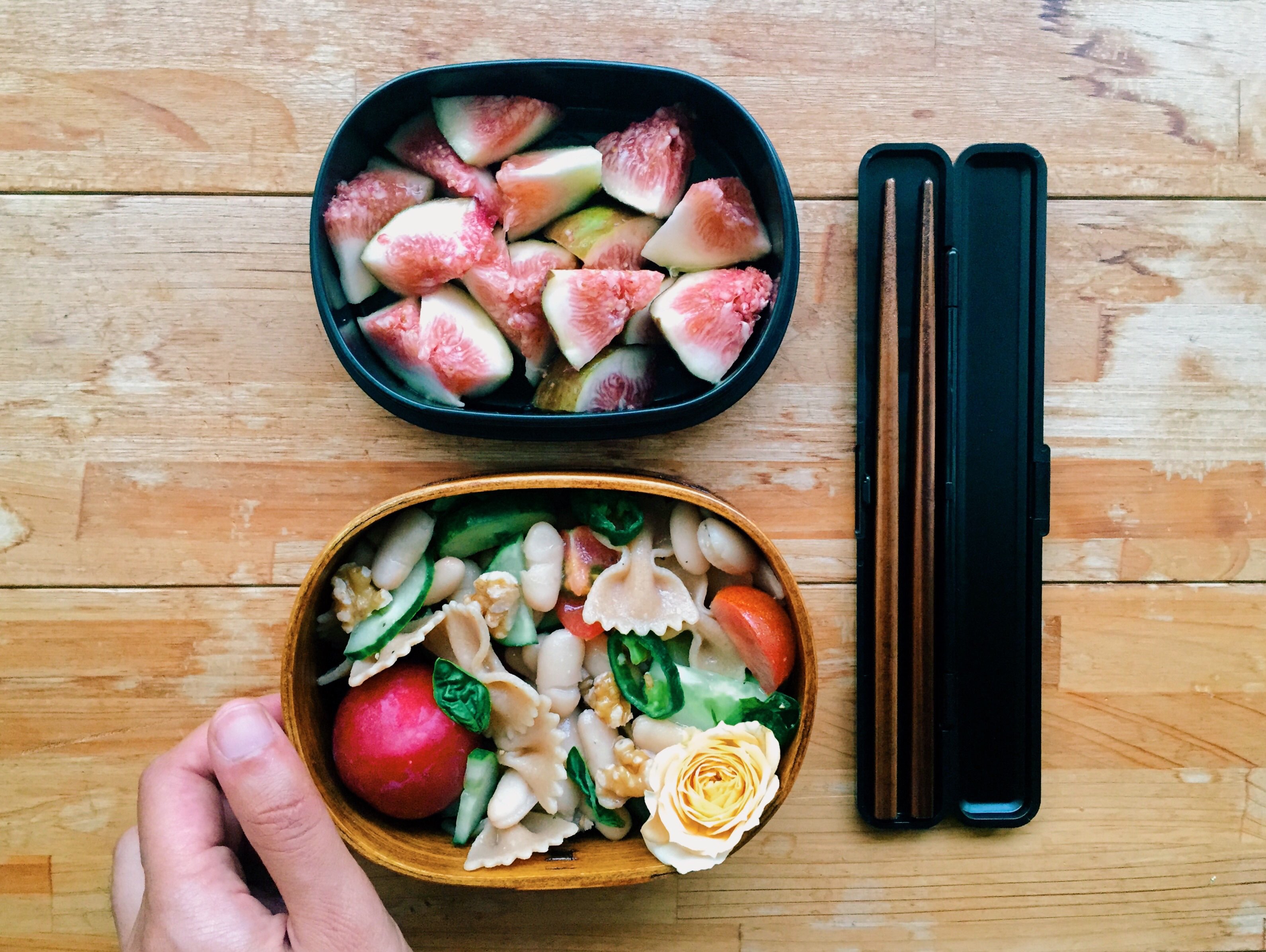
You don’t have to obey the holy bento rules
Don’t worry if your lunch doesn’t look like everyone else’s – there are no rules to making the perfect bento. Just keep in mind to use packable ingredients so that you don’t unintentionally end up with all the stuff smushed together or off-tasting when it’s time to open your box.
| Packable | Unpackable |
| Raw fruit and vegetables | Raw seafood |
| Cooked and cooled vegetables that won’t wilt (like steamed edamame beans and asparagus) | Dairy products |
| Raw nuts, dried fruit, seeds and other dry and/or prepackaged foods (likes crackers and granola) | Uncooked moist tofu |
| Thoroughly cooked proteins (like boiled eggs and deli meats) | |
| Room temperature-safe carbs (like rice, couscous, bread and quinoa) | |
| Preserved foods (like cheese and pickles) |
It doesn’t have to be boring
Having so many different parts to a bento means you can really get creative with your meal. For best results, divide your bento proportionally with a good balance of lean protein, natural sugars and good carbs. Then go as crazy as you like with a variety of color and textures.
- Yellow and orange: corn, capsicum, dried apricot, pumpkin, carrot, persimmon, egg
- Red and pink: cherry tomato, strawberry, cherry, fig, watermelon, beetroot
- Purple and blue: grapes, plum, blueberries
- Green: beans, asparagus, cucumber, gherkin, kiwi, okra, brussel sprouts
- Brown and white: muffins, crackers, wholewheat pasta, nuts, potato, rice, quinoa, cheese
- Black: nori, black sesame seeds, raisins, dried blackcurrants, olives
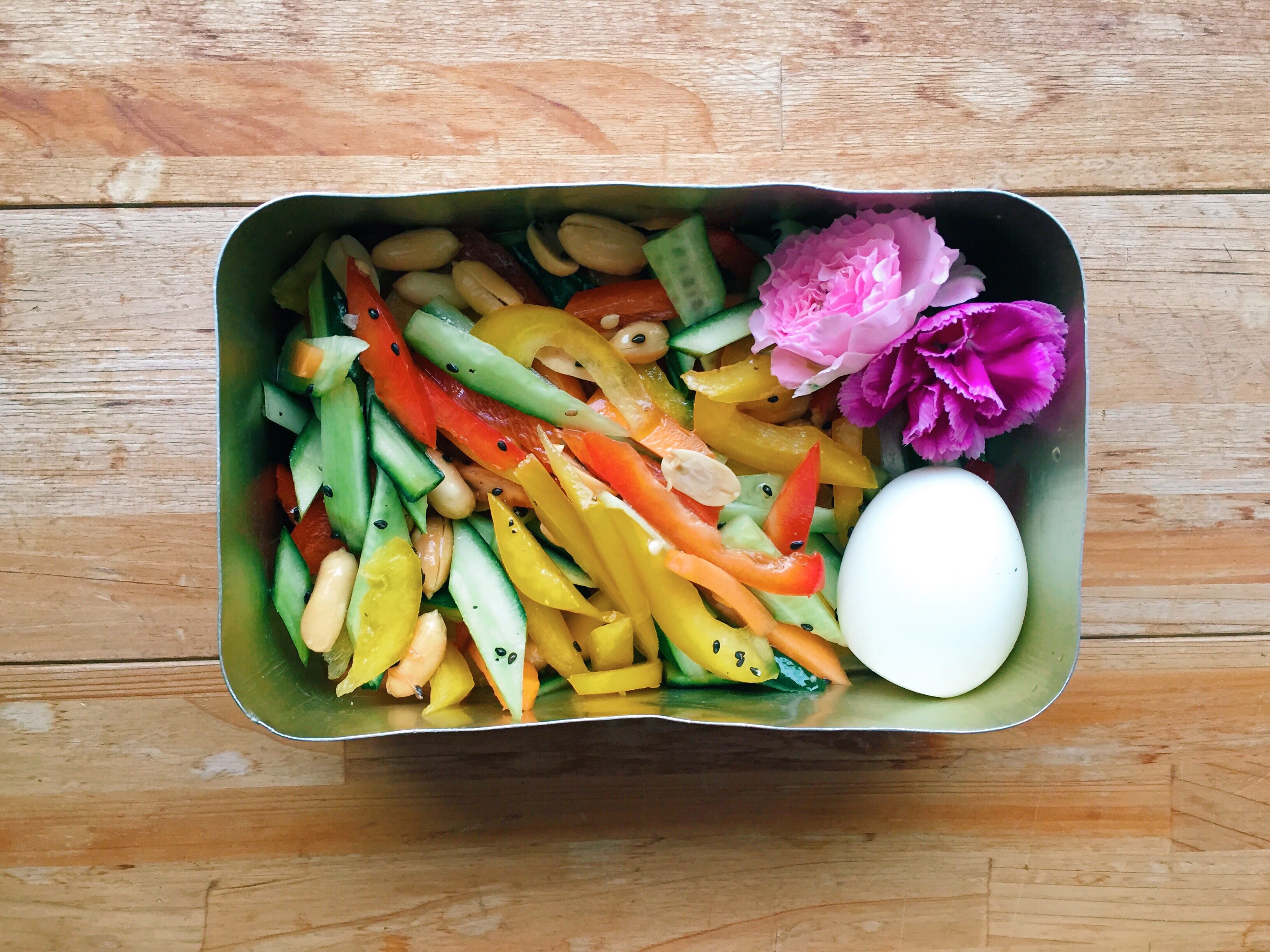
It doesn’t have to take long
If you can pass up the Pikachu rice ball and the centipede fries, then preparing a bento really doesn’t have to take much time. A maximum of 10-15 minutes for mine. If you’re really worried about this one, do as my Japanese friends and plan ahead.
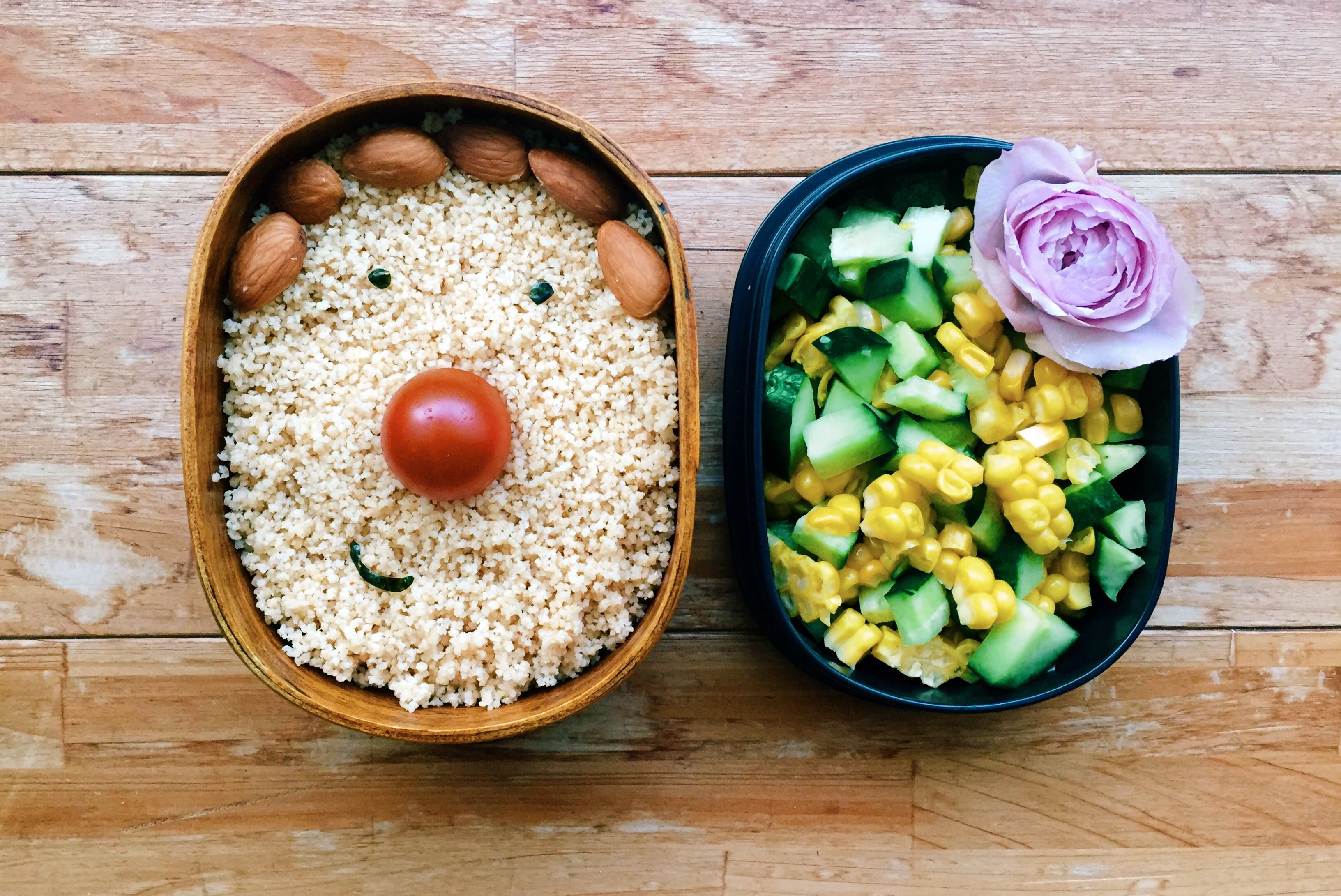
Happy healthy scoffing everyone! For more “how to bento” tips, see our Savvy tips for dreaded bento stress.

